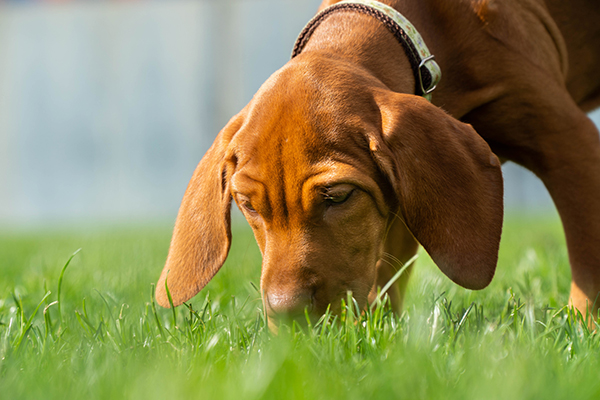
Studies show that less than 10 of dogs feel sick before eating grass and less than 25 of dogs throw up after eating it. It is possible that your dog is seeking to add nutrients from the grass to their diet.
Wild dogs like wolves and coyotes do it too.
Is too much grass bad for dogs. Many dogs have a condition known as pica which means they eat things that arent food including dirt feces toys and grass. 1 Most experts agree however that grass eating is normal canine behavior and that this type of pica usually doesnt cause too many if any problems. The consumption of grass can be a sign that your dog is attempting to relieve an upset stomach and some pups do vomit soon after eating it.
That said fewer than 25 percent of dogs. People Also Asked Can dogs get sick from eating too much grass. And grasseating doesnt usually lead to throwing up less than 25 of dogs that eat grass vomit regularly after grazing.
Other suggested reasons why your dog might be eating grass include improving digestion treating intestinal worms or fulfilling some unmet nutritional need including the need for fiber. Many people believe that dogs eat grass when they are feeling sick and will eat it to make themselves throw up. Studies show that less than 10 of dogs feel sick before eating grass and less than 25 of dogs throw up after eating it.
So its unlikely that dogs turn to grass eating as a. The reason that grass seeds can be dangerous for dogs or even cats is that they can easily penetrate their outer skin in multiple areas. If left untreated this can be incredibly painful in worst case scenarios the internal damage it may cause can even be fatal.
Can eating too much grass give my dog an ulcer. My vet seems to think its okay to eat grass but my dog eats it like hes starving. He often vomits it in the middle of the night in a fist sized clump.
And grass-eating doesnt usually lead to throwing up – less than 25 of dogs that eat grass vomit regularly after grazing. Other suggested reasons why your dog might be eating grass include. The upset stomach from eating too much lemongrass or a pesticide on the plan could cause your dog to have diarrhea.
The discomfort may come from not being able to digest lemongrass or something else your pet has eaten. An obstruction from eating large pieces of lemongrass can cause your pets abdomen to enlarge. Grass eating is normal dog behavior.
Wild dogs like wolves and coyotes do it too. So if your dog gets enough greens in his diet and he looks like hes feeling fine. He may just be in the mood to chew and bite.
Grass satisfies that need. We currently know of or suspect several grass species as dangers to our dogs. These species have two characteristics of the floret that make them particularly insidious.
Dogs eating grass is actually quite common it has been observed in wild dogs too and may be completely natural and this form of pica does not usually cause too many problemsIn fact most veterinarians consider it a normal dog behavior. Though some dogs vomit after eating grass the majority do not show any signs of sickness before eating grass and many do not vomit or become ill afterward. But if your dog seems ill take the cautious approach and call your veterinarian.
Many pet owners think dogs eat grass because they have an upset stomach. This is probably because the behavior is so closely linked with vomiting. However it is actually difficult to tell whether or not the dog is throwing up from eating the grass or she is throwing up because her stomach was upset and she thought the grass would help.
Your dog is repeatedly eating grass and vomiting up over a period of a few hours your dog is eating grass and doesnt seem themselves or appears unwell. Grass seeds found in long grass can get stuck in eyes ears skin and paws which can cause problems particularly during the summer months. Read our advice on this.
Generally grass itself is safe for dogs to occasionally eat as long as they are getting all the nutrients they need from their main diet. But there are things in and on grass that can harm our dogs. Pesticides are substances used to control weeds and pests that damage plants.
But these sprays and substances are quite often harmful to our pets too especially if they are. Grass can also become lodged in a nasal cavity causing irritation and even infection of the upper respiratory tract or can become inhaled deep into the lungs where lung infections can occur. It is possible that your dog is seeking to add nutrients from the grass to their diet.
Unfortunately owners can do only so much to protect their pets from the effects of grass awns. For working dogs or for dogs that spend a lot of their time recreating outdoors in tall grass there are commercially available vests that cover the chest and abdomen as well as full head coverings. Walking dogs on a short leash to prevent them.